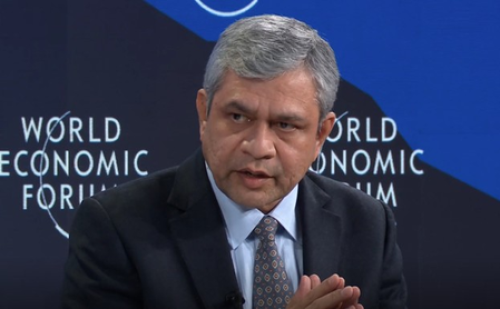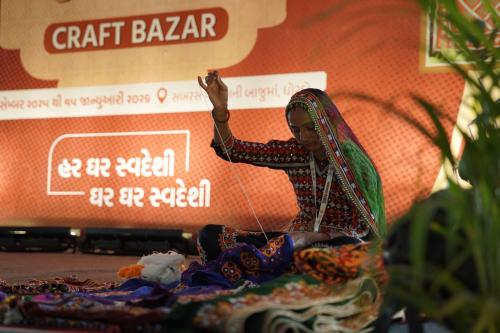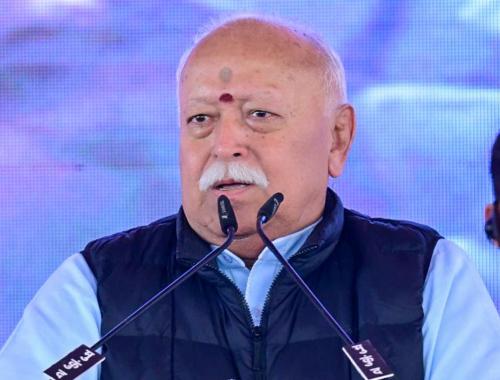BY ADITI ROY New Delhi, May 13 (IANS) Weddings across the globe have been put on hold for the time being, resulting in a "Domino Effect", thanks to the pandemic. Most weddings are expected to be pushed to the latter half of 2020 or the beginning of 2021. However, on the brighter side, in lieu of the nationwide lockdown to-be-weds can utilise this time to better plan their wedding once the virus threat is down to negligible. The ‘New Normal' for celebrating weddings in the post-COVID-19 world is going to be different. With social distancing becoming the norm, weddings will be smaller, more intimate, and with emphasis on top-notch hygiene standards as well as ensure contactless services. Given this situation, to limit risks and ensure safety, couples who plan to celebrate their weddings during the latter half of the year will have to consider altering their wedding plans. "In the aftermath of COVID-19 and once the lockdown is over, we expect many couples to tie the knot, however, the way they do it will change. Couples will forego the ‘big fat' wedding for an intimate, more cautious wedding, adhering to social distancing norms. To ease our consumers' worries during the pandemic, we are engaging with them virtually by conducting digital meetings and venue recess, offering more flexibility in terms of booking and rescheduling weddings for a later date. We hope such measures benefit everyone who is looking to tie the knot" says Sandeep Lodha, CEO, OYO-owned Weddingz.in. "There are multiple reports citing that the Coronavirus outbreak has brought the wedding industry to a screeching halt. This is only partially true, in terms of execution and wedding events being held at the moment. However, despite the pandemic or the lockdown, we at Weddingz.in are seeing couples enquire about venue bookings for the latter half of the year or early next year. Weddings, as we know it is a big milestone for families in India, leading to many couples rescheduling their wedding as opposed to cancelling them," Lodha added. Here are some precautionary tips and measures to help couples plan their big day with utmost caution in the aftermath of the virus. Open-air venue and well-spaced out table arrangements In the post-pandemic era, people will look forward to socialising again, however, they are still expected to be skeptical about attending mass gatherings. In such a world full of heightened cautiousness, wedding planners or couples need to take all precautionary measures while organising mass gatherings, especially weddings. An open-air or outdoor wedding means plenty of space, which could help people maintain physical distancing as compared to an indoor wedding. Furthermore, a well-thought-out seating arrangement is essential to reduce risks. Venues should organise bigger tables with limited seating to maintain distance between people. For instance, a table for 10 should be assigned to 5 guests only. Tweaking the buffet-style service The highlight of any Indian wedding is its lavish buffet. In an effort to comply with physical distancing measures, this is about to change too. While some couples may still opt for buffet-style service, precautionary measures like a contactless serving of dishes will be the norm. For example, one designated server will be assigned to serve a dish each at the buffet to avoid guests touching the cutlery/spoons. Opting for family-style entrees or sides at the table is another way to ensure the safety of guests, thereby avoiding serpentine queues at the food counters, where people tend to gather in close proximity at weddings. Needless to say, if it's a buffet-style service, line marking to maintain six feet distance between two people will be important. Besides this, caterers will also have to ensure that the raw materials or ingredients for food preparation are sourced from trustworthy suppliers, who ensure utmost cleanliness while delivering the stock from the farm to the venue. As weddings go local, they also go virtual In the aftermath of the pandemic, we can expect couples to opt for local weddings in their hometowns, instead of destination weddings. Additionally, overseas guests may prefer being a part of the celebration virtually, due to restrictions for non-essential travel. Furthermore, live streaming wedding ceremonies are a foreseeable trend in the near future. Therefore, wedding planners and venue operators can expect a surge in demand for such services post-COVID-19. Impeccable hygiene standards Right from the entry to exit, venues need to place sanitizers and hand napkins at every point. Guests should be able to sanitize their hands on arrival, have access to cleaning and protective equipment at their tables, ample availability of handwashes and sanitizers should be made in the washrooms. To avoid overcrowding the washrooms, guests should have a designated waiting area where they can maintain physical distance from each other. All venues should diligently disinfect spaces pre and post the wedding function. Apart from venue hygiene, even makeup artists and photographers documenting the wedding will have a certain SOP to follow in the post-pandemic phase. To ensure that the bride feels safe, makeup artists and hairstylists will wear masks and sanitise their products. With regards to photographers, the wedding party will prefer a smaller team to cover the wedding. Additionally, as weddings are set to be more intimate, a large team won't be required at the venue. Adapt to a post-COVID-19 culture Societal norms call for handshakes and hugs during milestones and celebrations like weddings. With the entire world maintaining social distancing, couples will prefer to opt-out of the gift-exchange and photo sessions that typically occur at wedding receptions. The new normal for weddings across the world is going to be significantly different. In the meanwhile, it's time to stay educated, make more informed decisions and rethink safer ways to plan happy and safe celebrations post the pandemic. (Aditi Roy can be contacted at aditi.r@ians.in)
The New Normal when it comes to "I DO"
- by Rinku
- May 13, 2020 2 minutes

The New Normal when it comes to "I DO".










